READY TO GET STARTED?
REQUEST A FREE ESTIMATE
Fill out the form below or call (888) 466-7849 for a free, no-obligation estimate.
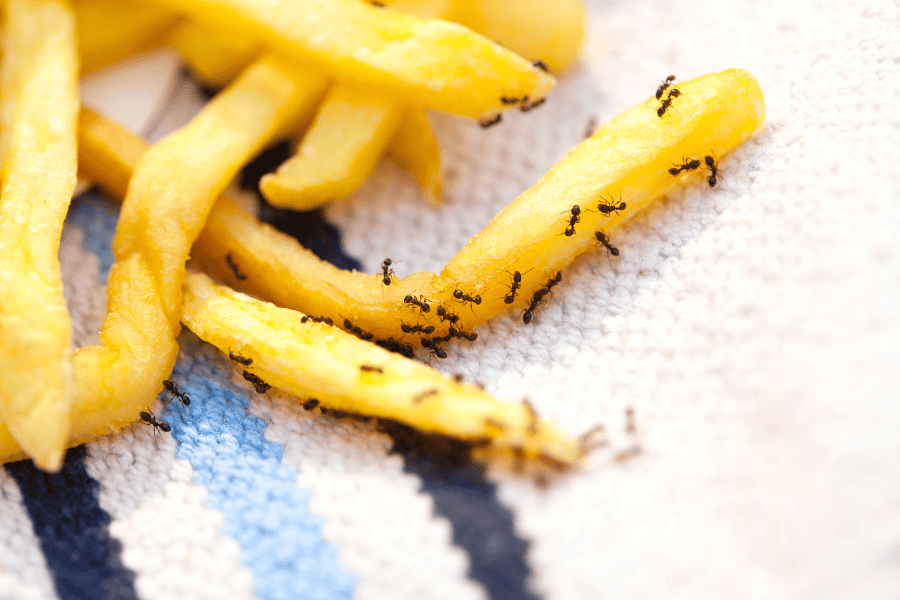
Miami’s warm, tropical climate is the perfect paradise for not only humans but pests too! It’s crucial for all Florida homeowners to be vigilant in controlling and preventing common household pests to avoid a full-blown infestation. Check out the common pests you should look out for and our tips on preventing them.
Preventing pests from entering your home is the first step in avoiding an infestation. Here are some effective pest prevention tips:
By implementing and staying informed on common pests in your area, you can keep your home pest-free. If you’ve noticed an influx of the pests mentioned above or would like to get ahead of prevention, it’s always best to call a Miami pest control company near you. These pest control professionals will provide you with a thorough inspection, identify the pest, and recommend the best treatment and prevention plan.
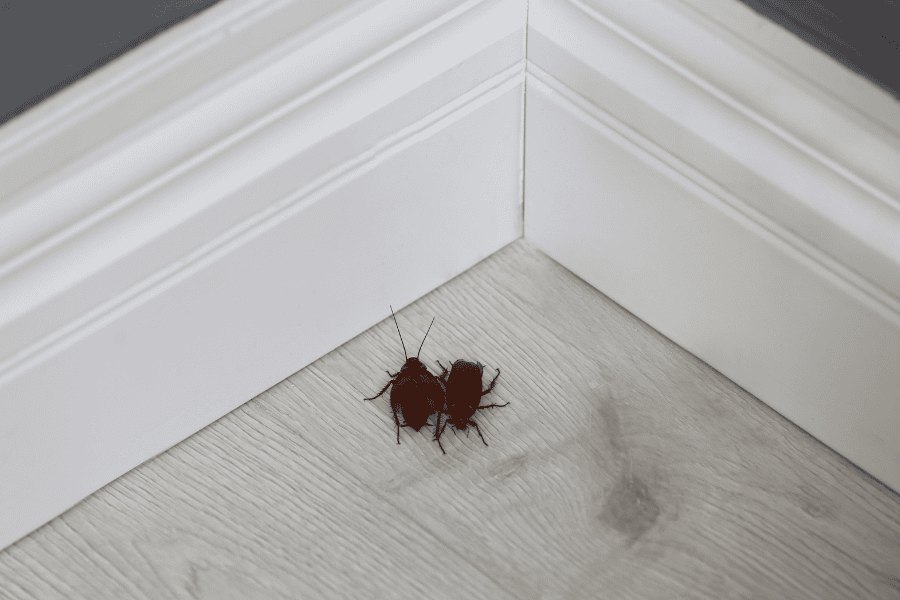
Living in Florida, we have to deal with our fair share of bugs invading our home throughout the year. Whether mosquitoes are invading your yard, ants are taking over your kitchen, or rats are raiding your trash cans, household pests can surely become a major issue. Unfortunately, humans can have a lot to do with pest infestations by our habits, often leading bugs right into our home. We break down the common reasons you could have a bug problem into your Florida home.
Our leftover trash is dinnertime for pests! Pests, such as rats and ants, are all looking for a food source for survival and will often look to our trash cans for available food, creating a huge mess in the process. It’s important to secure your outside and inside trashcan with a tightly sealed lid and ensure your trash bags are sealed without rips or tears.
Several pests prefer a damp environment and need water to survive too. Unfortunately, we also need water, and certain factors throughout our homes can provide pests with a water source, often leading to a bug problem. A leaky faucet can attract pests, like mice, who will return to areas if they have access to water or food. Make sure to check throughout your home for any leaky pipes, faucets, or AC units and repair them as soon as possible. Likewise, your basement and crawlspace can often create excess moisture that can lead to fungus, bad air quality, and pest infestations. Utilize a dehumidifier to dry any wet areas and consider crawlspace enclosure to ensure no moisture is found.
Clutter, such as old newspapers, magazines, and cardboard boxes can provide several pests with the perfect environment. Decluttering and cleaning items out to eliminate hiding places will help prevent pests overall. Consider utilizing plastic storage containers with lids to store any items and elevating them off the ground. Additionally, avoid having clothes piled on the floor, as bugs like spiders are known to hide out in them.
Dirty dishes, food crumbs, and drink spills can attract pests like flies, ants, roaches, and more right into your home! After each meal, wash and put away your dishes to avoid these pests. Likewise, clean up any leftover spills and food crumbs off your floors, dining room table, and counter tops. Don’t forget to clean behind and under your kitchen appliances too as pests like to hide behind stoves and refrigerators to find a food source.
If you’ve noticed an increase of bugs throughout your Florida home, it’s best to call a pest control company near you. These professionals will provide you with a comprehensive pest control and prevention plan.
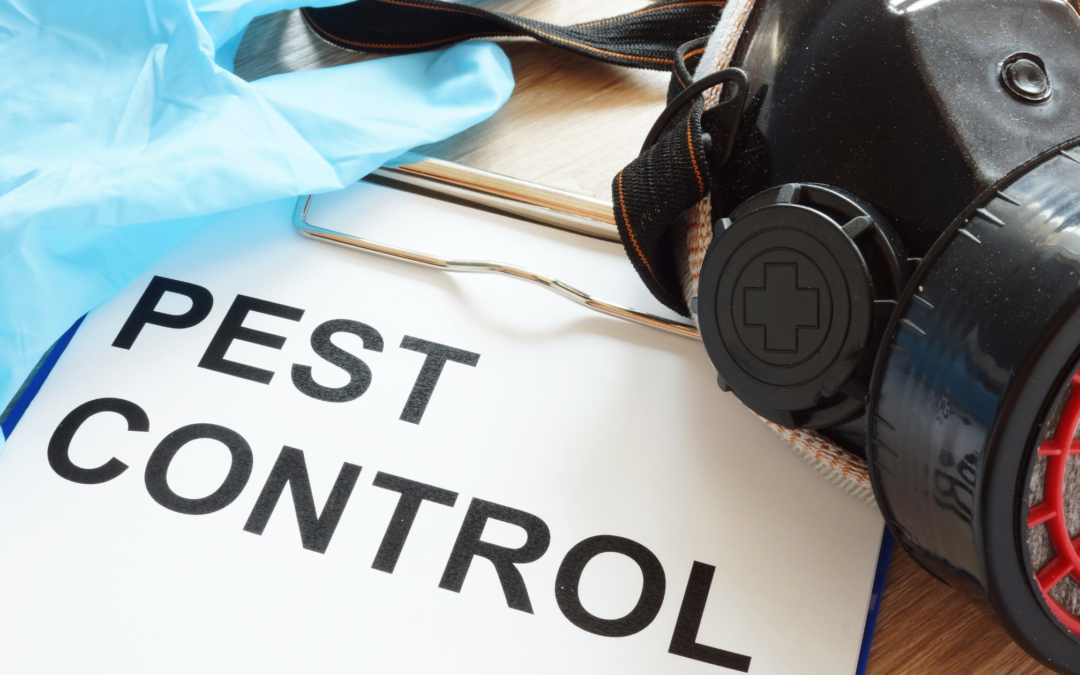
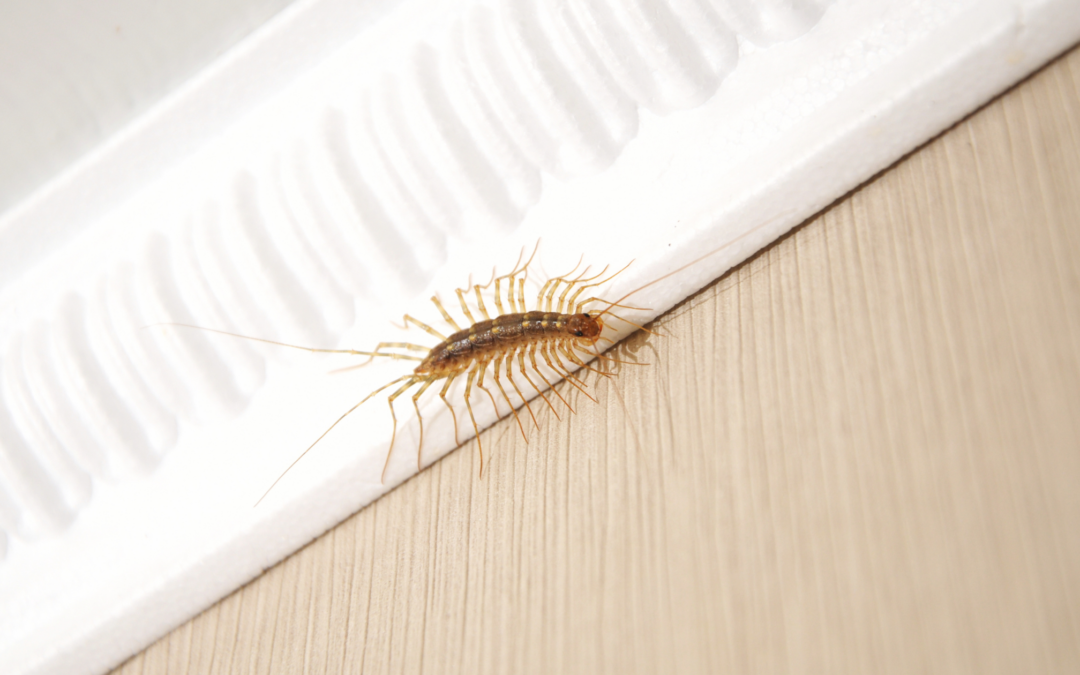
Centipedes: those creepy crawlers that send shivers down our spines when we encounter them scurrying across the floor. But beyond their unsettling appearance, many homeowners wonder: can centipedes bite or sting? Let’s dive into the facts and debunk the myths surrounding these household pests.
Centipedes are elongated arthropods with multiple pairs of legs, ranging from 15 to 177 pairs depending on the species. They typically have a flattened body and are light brown to dark brown or even reddish in color. One distinguishing feature is their long antennae and the pair of venomous claws located behind their head, known as forcipules.
Spotting a centipede indoors is often the first sign of an infestation. They tend to hide in dark, damp areas such as basements, bathrooms, and crawl spaces during the day and come out at night to hunt for prey.
While centipedes may look intimidating, they are generally not aggressive towards humans. However, if threatened or mishandled, they can deliver a painful bite using their venomous claws. While the venom is not typically dangerous to humans, it can cause localized pain and swelling.
Centipedes can be beneficial to your property by preying on other household pests such as cockroaches, spiders, and silverfish. However, their presence in large numbers can indicate an underlying pest problem that needs to be addressed.
Prevention is key when it comes to controlling centipedes in your home. Here are some tips to keep them at bay:
Don’t let centipedes and other household pests invade your space. Take proactive steps to protect your home and family by partnering with a trusted pest control company. Contact a pest control company near you today for a free pest control quote and let our experienced technicians help you reclaim your home from unwanted intruders.
While centipedes can bite if provoked, they are generally not a significant threat to humans. However, their presence can indicate underlying pest issues that need to be addressed. By following preventive measures and seeking professional pest control assistance when needed, you can effectively manage centipedes and enjoy a pest-free home environment.
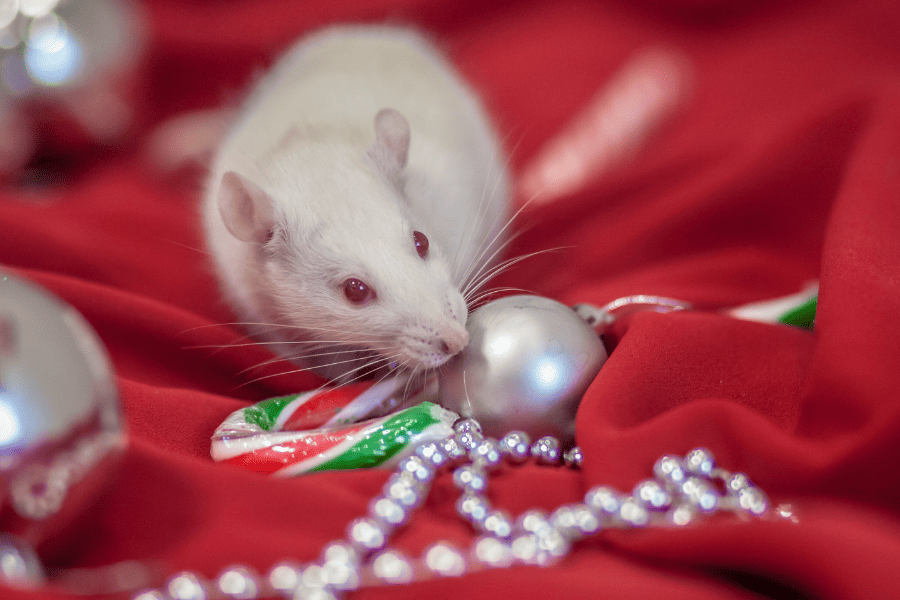
As the holiday season approaches, most of us are gearing up to host dinners and celebrations with friends and family. While preparing for your guests, the last thing you want to deal with is a pest infestation! Spiders, roaches, rodents, and more household pests are looking to your home for food, water, and shelter. Before you break out your holiday decorations, check out our pest prevention tips for holiday pest control!
If your South Florida home has an attic, basement, or a garage, it’s likely you’re storing your holiday decorations in them. While these areas can be a great way to store items, they are also dark and secluded, making it the perfect place for pests to invade. Pests, like rats and mice, will crawl into your holiday storage boxes you put away last year, destroying and contaminating them!
Before you bring down your holiday decorations, make sure to inspect and unpack them outside of your home. After the holiday season is over, pack certain decorations, like potpourri, foliage, and Indian corn in airtight containers to help prevent a pest infestation next year.
If celebrating Christmas, many families tend to buy an authentic Christmas tree and wreath. Unfortunately, these items can carry pests like spiders, moths, mites, and even squirrels! To prevent these pests from hitchhiking their way into your home, inspect both items outside and shake them to ensure they aren’t hiding in them. Likewise, before buying the items, check to see if they contain any droppings, gnawing marks, and other damage before bringing them inside.
Pests love clutter and with extra guests in your home, trash and clutter can add up. It’s important to keep your home tidy and clean as much as possible. After each meal, clean up any crumbs and spills in your dining room and kitchen areas. Don’t forget to take the trash out every night and place it in a trash container with a tightly sealed lid. If you know you will have extra food supplies, look to store them in an air-tight container and place it in your pantry or refrigerator.
If you’ve noticed more pests than you’re comfortable with before your guests arrive, consider calling your local South Florida pest control company. These professionals will be able to inspect your home, identify the pest and entry points, and recommend the best pest control and prevention plan to avoid holiday pests in the future!